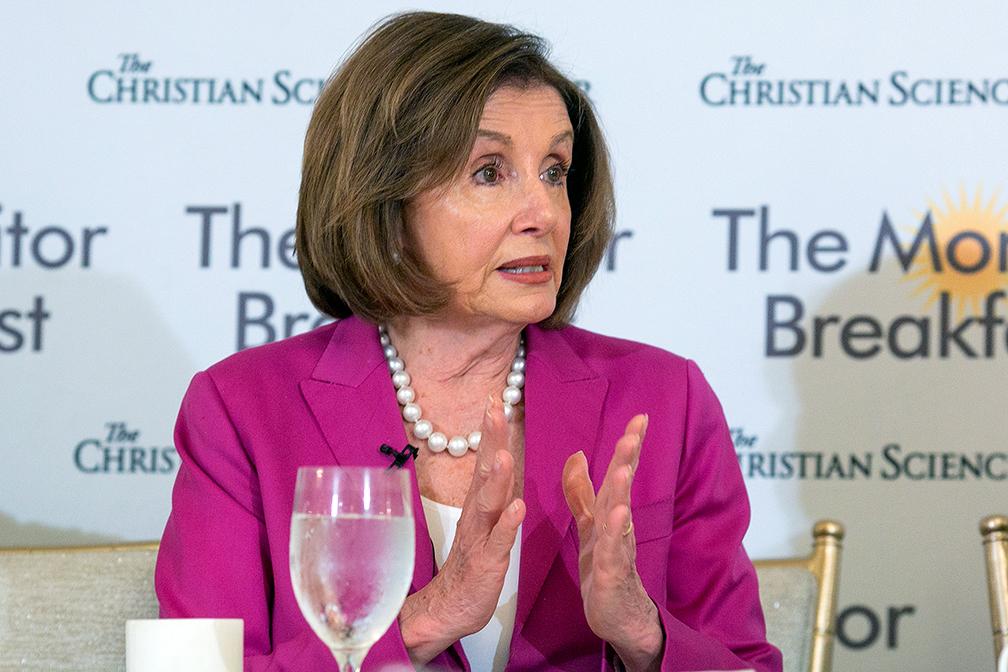WASHINGTON—House Speaker Nancy Pelosi on June 19 threw her weight behind new legislation defending Hong Kong’s democracy and the rule of law. The bill is a “very bipartisan” response to Beijing’s latest effort to erode human rights in the city.
The “one country, two systems” framework governs the relationship between Hong Kong and Beijing through 2047. It allows the city to retain extensive autonomy and freedoms, including a separate legal system and freedom of speech.
Pelosi called the bill “very bipartisan” and noted that the legislation would require the Trump administration to certify annually that Hong Kong is sufficiently autonomous to receive special treatment from the United States.
“If they’re just China, then they don’t get those privileges,” she said.
The new bill also would require the president to identify individuals responsible for the forced removal of people from Hong Kong to the mainland for detention, freeze their U.S.-based assets, and deny them entry into the United States.
‘A Beautiful Sight to Behold’
Residents of Hong Kong have turned out in record numbers in the past week to protest proposed changes to the city’s extradition law and Beijing’s growing interference in Hong Kong affairs. On June 17, 2 million people clogged Hong Kong’s streets, and the week before there were more than 1 million, organizers said.Pelosi described the protests as “a beautiful sight to behold.”
“A quarter of the whole population of Hong Kong was in the streets on this extradition law, which just is appalling,” she said.
The proposal erodes the city’s legal autonomy.
“If you’re arrested in Hong Kong, you will be tried in Beijing. And of course, they can cook up any charge on any person, including journalists,” Pelosi said, adding that it would also imperil the safety of the 85,000 Americans living in Hong Kong.
Following massive public protests, Hong Kong Chief Executive Carrie Lam said she suspended the proposal indefinitely. Protestors, however, weren’t satisfied with Lam’s announcement, calling for her to completely withdraw the bill and step down.
Pelosi said the way China has treated Hong Kong also sends a bad message to Taiwan. Beijing has claimed that Taiwan’s freedoms and political system can be preserved if the island is reunited with China under the same model as Hong Kong’s “one country, two systems.”
“They always try to weigh in on that, but I think they did not do themselves a service,” she said.
Pelosi, who is a longtime critic of China’s human rights record, accused the Beijing regime of “taking China backward in terms of repression.”
“This is a big issue,” she said. “There could be 2 or 3 million Uyghurs in education camps right now. I myself have taken a delegation to Tibet to see what they’re doing to suppress the religion, the culture, the language of Tibet.”
Pelosi has also strongly condemned the persecution of the Falun Gong spiritual practice, and led a congressional delegation to protest on Tiananmen Square not long after the 1989 massacre.
“All over China, there are incidences of suppression of human rights and democratic freedoms,” she said.
The House speaker earlier urged the U.S. government to link human rights to current trade talks with the Chinese regime.
“If we don’t speak about human rights in China because of economic concerns, we lose all moral authority to talk about human rights in any other place in the world,” she said at a congressional hearing on June 4 commemorating the 30th anniversary of the Tiananmen Square massacre.





